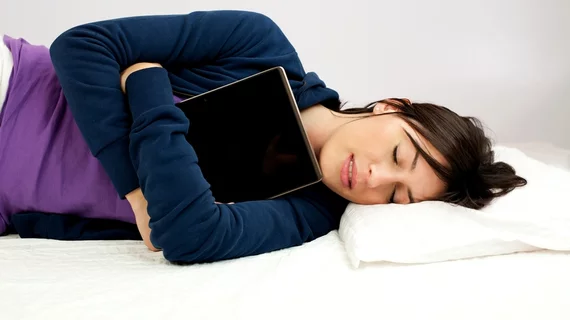Consumer sleep technologies like wearables and mobile apps are adept at collecting patient-generated health data, but lacking validation data and FDA clearance are hindering utilization, according to a position statement published in the May 15 issue of the Journal of Clinical Sleep Medicine.
In the current digital market, wearable and mobile health-related apps have become an easy-to-use method to collect patient data. But the technology has yet to be thoroughly tested in its accuracy in improving consumer sleep habits.
"Given the heightened public awareness of the importance of sleep, and of diagnosing and treating sleep disorders, I believe we will continue to see more patient-generated health data," said lead author Seema Khosla, MD, the medical director of the North Dakota Center for Sleep in Fargo, North Dakota. "We need some guidance both for how to utilize consumer sleep technology in our practice and also how to communicate with our patients about the specific metrics their devices are measuring."
Without validation data and FDA clearance, doubt in clinicians' minds about the capability of these technologies. Until barriers are addressed, the authors suggest patients should not replace validated diagnosis testing with information from digital sleep technology.
"While technology is advancing rapidly, and we are following the trends closely, consumer sleep devices currently are unable to diagnose sleep disorders," said Ilene Rosen, MD, MS, president of the American Academy of Sleep Medicine. "Individuals who are dissatisfied with their sleep, experiencing an ongoing sleep problem, or struggling with excessive daytime sleepiness or fatigue should discuss this important issue with a licensed medical provider, regardless of what their wearable or other consumer sleep technology device tells them."

